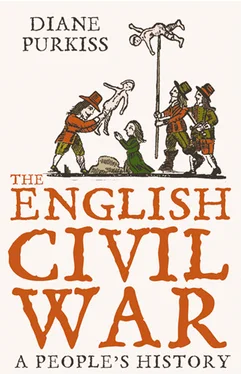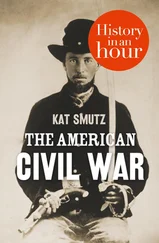Nehemiah Wallington might have been reading, too, if he had not had to work so hard at his trade of woodturning; like most ordinary Londoners, his day was dominated by work, to which he was called by the many London bells which tolled the hours of daybreak and dark. He liked to follow theological debates when his job allowed, and he especially loved the bestselling work The Plain Man’s Pathway to Heaven; much of its homespun wisdom found its way into the journal Nehemiah was keeping, recording his spiritual life. At forty-two, he couldn’t help but be conscious that his life might well be drawing to a close. So Nehemiah liked sermons too, and preaching of all kinds. That was lucky, because a sermon from a very godly preacher could easily last two hours, sometimes longer, and on a Sunday Nehemiah and hundreds like him would be in the congregation, absorbing every word. It was people like Nehemiah who hated the Anglican Church’s swerves towards what they thought was treacherous popery, and provided most of the unrest before the Civil War itself began. It would not take much for them to blame the king for it, and his little Catholic queen.
If Nehemiah went to his favourite church, though, he could pass the theatres it denounced on his way, and sometimes even feel tempted to enter them. If he had ever given in to temptation, he would have seen thrillingly innovative new scenery that looked from a distance like the real world, and in 1639 might have been adorning plays like Henry Glapthorne’s Argalus and Parthenia. A Caroline play could be perverse and tragical, climaxing in a huge pile of corpses, or a sharp and salty comedy that made fun of the people in the next street. Nobles, on the other hand, could see a very different kind of production, a masque, a four-hour extravaganza presented by the most beautiful and alluring ladies of the court; in one scandalous production they wore topless costumes, baring their breasts. This was doubly scandalous, because these were real women acting, and speaking lines as well – not professional actresses, but the queen and her ladies. A man named William Prynne had recently lost his ears for writing that women actresses were notorious whores, in a manner that plainly insulted Queen Henrietta. But to a man like Wallington, the queen’s activities were a clear temptation to providence, and a sign that London was no city for the godly, but rather a portal of hell.
For better-off children, the country could be a delicious place of play. In 1639, some who would rise to prominence in the war were still close to a childhood of wild unsupervised games. The eleven-year-old John Bunyan might have been holed up somewhere with his favourite book, no Bible, but the racy – and sexy – adventures of a superhero called Bevis of Hampden. And thirteen-year-old Richard Cromwell, Oliver’s son, was still slogging his unenthusiastic way through grammar school, unaware that he was to be – briefly – ruler of England. The young Matthew Hopkins shows what terrible pressures could be created inside the good seventeenth-century child. As a boy, Matthew is said to have ‘took affright at an apparition of the Devil, which he saw in the night’. As the son of a godly vicar, whose will insists firmly on salvation through faith alone, Hopkins was like most godly children; he was terrified of the powers of hell, which he believed might claim him. And yet in maturity Hopkins liked to invent different childhoods for himself. He told William Lilly that he came from a line of schoolmasters in Suffolk, ‘who had composed for the psalms of King David’; there was indeed a John Hopkins, an English hymn-writer, but he didn’t have a son called Matthew. Hopkins told Lady Jane Whorwood that he was really named Hopequins and was the grandson of an English Catholic diplomat, Richard Hopequins, a much grander background than he could really claim. These alternative identities suggest a profound wish to hide from something or someone, perhaps from the Devil.
Among all those relishing peace were the two men who were to be the chief protagonists in the coming wars. The man who was to be the only king ever executed by the English people was born a privileged little boy, but one whom nobody particularly wanted. Charles Stuart spent a childhood ill and in pain, bullied by those he loved, and he grew into a disabled and often unhappy adult. In the same calendar year, another boy was born, a boy who was to become the only man not of royal blood ever to head the English state. Oliver Cromwell was welcomed into a family of struggling East Anglian gentry, the adored and long-awaited only boy in a family of girls. The boost to his self-esteem was lifelong.
When Charles was born on 19 November 1600, he was his parents’ third child, and they had a fine son already, destined to rule in Edinburgh one day. Charles was nobody’s favourite, nobody’s problem. He was first assigned a noblewoman to be his foster-mother, in the manner usual for those of his class; her name was Lady Margaret Ochiltree. Charles cared enough about Lady Margaret to be angry when her pension fell into arrears in 1634. But of course she didn’t do the childcare herself; Charles also had a wetnurse, and a rocker who was supposed to rock the cradle, but was also a general nurserymaid, and other nursery nurses. Like other upper-class children, his closest bonds were therefore with servants, and hence precarious because servants could come and go. A child was supposed to be attached to his natural parents, but when he was only two, Charles lost his parents to England; James left Scotland in April to take the throne of England after Elizabeth I died in March 1603, and was followed a month later by Anne, with her eldest children, Henry and Elizabeth. With astonishing insensitivity, or perhaps with a desire to begin Charles’s princely training, the royal couple also moved him to a new household, that of Alexander Seton, Lord Fyvie, who had nine surviving daughters and a son.
Installed in this overflowing family, Charles does not seem to have flourished. Reports sent on him spoke of his longing to be with his parents. There was another problem, too, one that would overshadow Charles’s relations with his parents still further. Fyvie sent bullish reports on Charles to the court, but read carefully they contained alarming news. In April 1604 – when Charles was three – Fyvie said that Charles was ‘in good health, courage and lofty mind’ but added that he was ‘weak in body’. Most ominously of all, he confided that Charles was ‘beginning to speak some words’. If Charles was really only beginning to speak at the age of three, it points to severe disability. Fyvie added ‘he is far better of his mind and tongue than of his body and feet’. This report alarmed Charles’s parents, for James sent Dr Henry Atkins to examine the prince. Arriving on the night of 12 May 1604, he reported to the king that he had found the young duke ‘walking with an ancient gentlewoman his nurse in the great chamber … although he walked not alone but sustained and led by that gentlewoman’s hand’. Atkins said that Charles evaded an examination by ‘calling for music to one of his servants … desiring several kinds of measures … and would imitate the instrument with the sound of the true tune with his high tender voice’. But the next day he was duly examined, and Atkins reported that he was in reasonable condition but for the joint problems, ‘the weakness of his legs’, diarrhoea said to be caused by teething, and a desire to drink often. Tellingly, Atkins couldn’t examine Charles’s teeth because ‘his Highness would not permit any to feel his gums’. Despite his fairly reassuring report to the king and queen, Atkins wrote more frankly to Secretary of State Robert Cecil that ‘at my coming the duke was far out of order’. To the king he announced that the duke would begin a journey south under his supervision. Charles had difficulty standing and walking because ‘he was so weak in his joints and especially ankles, insomuch as many feared they were out of joint’ and of the ‘joints of his knees, hips and ankles being great and loose are not yet closed and knit together as happeneth to many in their tender years which afterwards when years hath confirmed them proves very strong and able persons’.
Читать дальше












